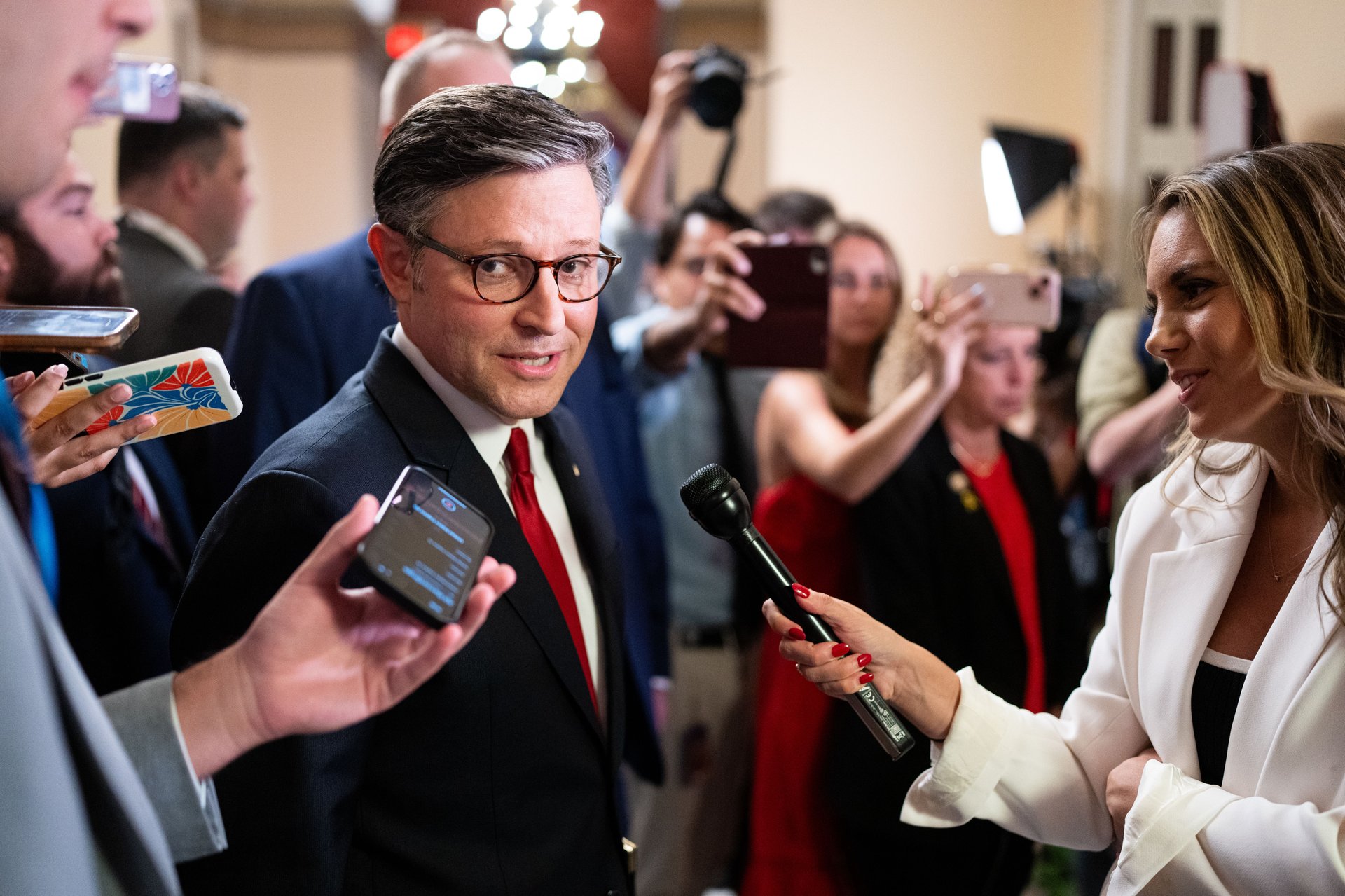GOP megabill passes the House and heads to Trump's desk
Almost every House Republican who lambasted the legislation ended up voting for it, a testament to Trump's solidified grip over the party.

Speaker of the House Mike Johnson, R-La., speaks to reporters in the House of Representatives. (Bill Clark/CQ-Roll Call, Inc via Getty Images)
The House passed the GOP's sweeping domestic policy bill in a party-line vote on Thursday, delivering a victory to President Donald Trump who had demanded his party fall in line by July 4.
Suggested Reading
The 218-214 vote saw two Republican lawmakers side with Democrats who were uniformly in opposition. Reps. Thomas Massie of Kentucky and Brian Fitzpatrick of Pennsylvania were the only GOP defections.
Related Content
"This bill is for hard working Americans, and they deserve it," Speaker Mike Johnson said in a floor speech. "If you're for a secure border, safer communities, and a strong military, this bill is for you. If you're for common sense fiscal responsibility... this bill is for you."
The vote capped a tumultuous four-month stretch of deal-making among Republicans that saw conservative and moderate factions lambast the bill for different reasons. Still, the outcome never felt in doubt once the megabill crossed the Senate back to the House.
Conservatives complained the megabill didn't cut the national debt enough. Moderates threatened to oppose the bill for its sharp reductions to Medicaid that are projected to yield enormous losses in health coverage for poorer Americans. In the end, nearly every House Republican who criticized the bill ended up voting for it in a testament to Trump's solidified grip over the party.
The $3.3 trillion package carried a suite of tax cut extensions, additional border and defense spending, in tandem with sharp cuts to Medicaid and other safety-net programs to partly finance their goals. It also contained Trump's signature campaign proposals to eliminate tax on tips, overtime pay, and a larger standard deduction for seniors. Those are scheduled to expire once he leaves office. The package also slashed many clean energy tax incentives as well, and will implement a first-ever 1% tax on remittances.
Republicans employed a special budgetary process allowing them to pass the legislation with solely GOP votes. It sidelined Democrats who had little power to sink it. They successfully slowed the bill's path to final passage instead, as House Minority Leader Hakeem Jeffries broke the record for longest floor speech after speaking for 8 hours and 44 minutes. Republicans had to cast their votes during the day instead of the early evening hours.
Fitzpatrick hailed from a district that former Vice President Kamala Harris carried in the 2024 election. He later said the Medicaid cuts were too steep for him to support. Official projections from the nonpartisan Congressional Budget Office show that almost 12 million people could lose health coverage, much of it from proposed work requirements.
"It was the Senate’s amendments to Medicaid, in addition to several other Senate provisions, that altered the analysis for our PA-1 community," Fitzpatrick said in a statement. "The original House language was written in a way that protected our community."
The legislation's benefits are heavily tilted towards richer Americans. The Yale Budget Lab recently analyzed the bill and estimated that a person reporting little or no income would experience $560 in losses by 2034. By comparison, a person reporting over $3 million income would reap $118,000.
